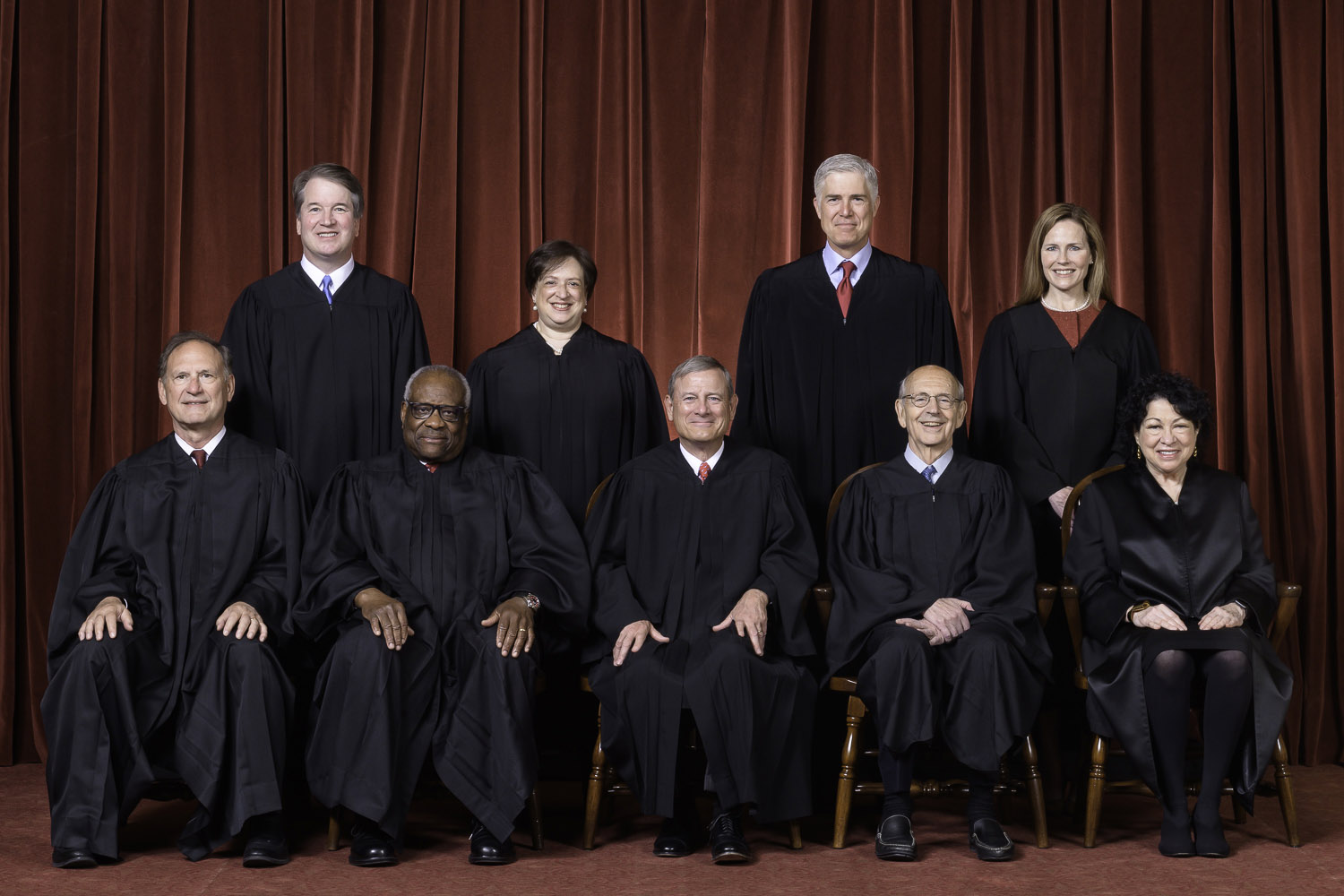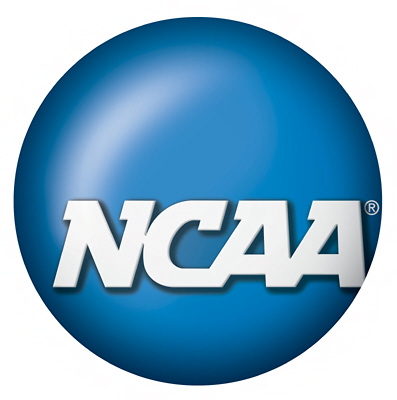OPINION: The NCAA’s Huge Supreme Court Loss Came From Hubris And Incompetent Leadership
Today the Supreme Court weighed in on an important case involving the NCAA – 20-512, NCAA vs. Alston.
In a stunning unanimous 9-0 decision, the nine justices upheld a decision by the Ninth Circuit Court that “restricting [certain] education-related benefits” above and beyond the value of a scholarship and full cost of attendance was unlawful.
Reading the entire 52 page decision, including the majority opinion written by Judge Neil Gorsuch and concurring opinion by Judge Brett Kavanaugh, one thought repeatedly returns to my mind: What the hell was the NCAA thinking?
At this point, there’s little doubt that Mark Emmert’s feckless leadership in particular has been a disaster when it comes to any sort of accurate representation of its collegiate athletes.
Since COVID, it would have been so very easy for Emmert and the NCAA to do literally anything to protect athletes – suspend fall competition in football, working with scientists in an effort to make competitions safer, even simply coming up with one common set of health guidelines for practice and play. Emmert and his paymasters, the NCAA Board of Governors, instead washed their hands of the entire affair and played Lord of the Flies with every collegiate conference and basically every NCAA institution that wanted to play sports.
What was shocking about NCAA vs. Alston, however, was that Emmert and his legal team couldn’t even be bothered to present a competent case in front of the Supreme Court in a case they were attempting to make.
The hubris of the NCAA was astounding, and as a result, the entire intercollegiate system is under threat.
The NCAA enjoys an antitrust exemption from the Sherman act, which is a law that basically promotes free competition and prohibits monopolies. Broadly due to their educational mission, the NCAA has an exemption from the free competition provisions of the law, which allows them to operate differently from a for-profit business.
The big brains at the NCAA seemed to think that they could simply waltz up to the Supreme Court, talk about how important the NCAA is, and be able to simply say and do what it wants in the name of amateurism. In this particular case, it was arguing that offering education-related benefits to students, such as computers or maybe lab equipment, should be limited because it would cause an unlevel playing field for collegiate athletics.

“The court found unlawful… certain NCAA rules limiting the education-related benefits schools may make available to student-athletes,” the ruling summarizes. “Both sides appealed. The Ninth Circuit affirmed in full, holding that the district court ‘struck the right balance in crafting a remedy that both prevents anticompetitive harm to Student-Athletes while serving the procompetitive purpose of preserving the popularity of college sports.’ Unsatisfied with that result, the NCAA asks the Court to find that all of its existing restraints on athlete compensation survive antitrust scrutiny.“
It gets worse for the NCAA the deeper you read.
There is a compelling case to be made that an athletic scholarship to attend a prestigious Division I school is extremely significant compensation and a huge benefit that outweighs most monetary compensation. But the NCAA didn’t even appear to try to make that case at all.
Instead, they allowed the argument to be framed in terms of an economics fantasy land, where the value of their degrees are not considered in-kind compensation for the athletes at all. In fact the word “degree” only appears five times in the entire NCAA vs. Alston decision, and never in terms of part of the “compensation” for current athletes.
How is this possible – that a discussion about the compensation that an athlete gets doesn’t even talk about the most self-evident compensation for the athletes that results, namely, a college degree?
Part of this argument involved the definition of the market for young, collegiate-eligible athletes NCAA’s market to be ludicrously defined down to be “the market for ‘athletic services in men’s and women’s Division I basketball and FBS football, wherein each class member participates in his or her sport-specific market. There are no ‘viable substitutes,’ as the ‘NCAA’s Division I essentially is the relevant market for elite… [men’s] college basketball,” the ruling continues.
The NCAA could have pushed back, and accurately said that the market for “Division I athletic services” is a circular definition, almost comically crafted to be so narrowly defined that any sort of service could be defined in that way. (“The market for people working at McDonald’s are the people who apply to work at McDonald’s.”)
They could have also said that a much more correct and relevant definition of the market is the one for “skilled basketball players,” which is not restricted to the NCAA. For example, there is literally nothing stopping the NBA from signing athletes out of high school to their G League, nor are there any restrictions for talented high school players to sign internationally to play basketball in other countries. And get compensated.
There are other alternatives, too, that don’t appear to have entered into the SCOTUS’ consideration. Athletes can enroll at a NAIA or NJCAA school, for example, and compete in their sport there. In truth, it’s not a monopoly.
But the NCAA not only didn’t argue that, they didn’t even appear to try.
“The parties do not challenge the district court’s definition [emphasis added] of the relevant market,” Gorsuch’s ruling states. “They do not contest that the NCAA enjoys monopoly (or, as it’s called on the buyer side, monopsony) control in that labor market—such that it is capable of depressing wages below competitive levels and restricting the quantity of student-athlete labor. Nor does the NCAA dispute that its member schools compete fiercely for student-athletes but remain subject to NCAA-issued-and-enforced limits on what compensation they can offer. Put simply, this suit involves admitted horizontal price fixing in a market where the defendants exercise monopoly control.”
I am not a lawyer – just a person who has studied collegiate athletics for a long time, and someone who has studied and written about the history of early collegiate athletics – but I read this last paragraph and wonder how the NCAA Board of Governors doesn’t just fire Emmert and his legal team on the spot. How do they let the market for athletes to be defined in this way? How do they not even let the benefit of a college degree become part of the discussion?
And remember, it was the NCAA asking for this clarification!
“It is unclear exactly what the NCAA seeks,” Gorsuch’s ruling continues. “To the extent it means to propose a sort of
judicially ordained immunity from the terms of the Sherman Act for its restraints of trade—that we should overlook
its restrictions because they happen to fall at the intersection of higher education, sports, and money—we cannot
agree. This Court has regularly refused materially identical requests from litigants seeking special dispensation
from the Sherman Act on the ground that their restraints of trade serve uniquely important social objectives beyond
enhancing competition.”
Reading this is seems like the NCAA’s main argument was to basically claim immunity from any scrutiny because, hey, they’re the NCAA, and they’re important. The hubris of the NCAA seems to be off the charts. To use a football metaphor, they thought they’d just show up and win the game. Unfortunately for them, the Supreme Court saw things differently.
I can’t explain how much of an abject failure this was by Emmert and the NCAA’s legal team. The ramifications of their ineptitude will be felt for generations. It seems to me very likely their hubris indirectly could cause the disappearance of thousands of opportunities for students to compete.
While the decision on this particular case is narrow, it’s the possibly future impacts that will be watched very closely. One very big reason for this is that the decision calls the athletes employees in all but name.
“The NCAA’s rules fixing wages for student-athletes fall on the far side of this line. Nobody questions that Division I basketball and FBS football can proceed (and have proceeded) without the education-related compensation restrictions the district court enjoined; the games go on. Instead, the parties dispute whether and to what extent those
restrictions in the NCAA’s labor market yield benefits in its consumer market that can be attained using substantially
less restrictive means.”
The mere fact that Gorsuch uses the words “wages” and “student-athletes” in this context here – and he does it many times in his decision – is more telling than anything else. He doesn’t dispute – and the NCAA doesn’t appear to, either – dispute the fact that the athletes are employees, calling their benefits “wages”.
Kavanaugh goes even further.
“There are serious questions whether the NCAA’s remaining compensation rules can pass muster under ordinary rule of reason scrutiny,” he writes. “Under the rule of reason, the NCAA must supply a legally valid procompetitive justification for its remaining compensation rules.
“As I see it, however, the NCAA may lack such a justification. The NCAA acknowledges that it controls the market for
college athletes. The NCAA concedes that its compensation rules set the price of student athlete labor at a below-market rate. And the NCAA recognizes that student athletes currently have no meaningful ability to negotiate with the
NCAA over the compensation rules.
“The NCAA nonetheless asserts that its compensation rules are procompetitive because those rules help define the
product of college sports. Specifically, the NCAA says that colleges may decline to pay student athletes because the defining feature of college sports, according to the NCAA, is that the student athletes are not paid. In my view, that argument is circular and unpersuasive.
“The NCAA couches its arguments for not paying student athletes in innocuous labels. But the labels cannot disguise
the reality: The NCAA’s business model would be flatly illegal in almost any other industry in America. All of the restaurants in a region cannot come together to cut cooks’ wages on the theory that “customers prefer” to eat food from low-paid cooks. Law firms cannot conspire to cabin lawyers’ salaries in the name of providing legal services out of a “love of the law.” Hospitals cannot agree to cap nurses’ income in order to create a “purer” form of helping the sick. News organizations cannot join forces to curtail pay to reporters to preserve a “tradition” of public-minded journalism.
Movie studios cannot collude to slash benefits to camera crews to kindle a “spirit of amateurism” in Hollywood.”
If athletes will become employees – which seems to be what Gorsuch and Kavanaugh have concluded – what happens to literally every other NCAA sport?
Athletic departments can’t and won’t distinguish between football players and field hockey players. They no longer will be running sports for the purpose of allowing students to learn and compete. Instead, they will be profit-seeking enterprises that will see the revenue-making sports (football, men’s basketball) as a net positive and see sports teams that don’t make money (literally everyone else) be in danger of being on the chopping block.
Entire sports will disappear – sports that indirectly provide revenue for the universities through tuition, and are a source of pride and education for the athletes themselves. The Supreme Court – and apparently the NCAA – don’t seem to realize that there are many Division I athletes that pay tuition for the privilege of competing in their sport at the Division I level. Once you call them employees and pay them, many schools simply won’t do it, and with it thousands of athletic opportunities will be gone.
Take wrestling. Some schools offer wrestling as a sport. In almost all cases, it’s not a sport that is a big revenue generator for the school. If you consider the wrestlers employees, not students, access to a degree isn’t enough – you now have to pay them as employees, too. Will all schools do so? Definitely not.
And the sports that remain will be corrupted beyond recognition. There is a reason the NCAA has been trying to rein in boosters for hundreds of years – they realize illicit gifts cheapen the value of degrees, make a mockery of fair competition, and practically invite athletes to throw games. Folks who argue “what’s wrong with a quarterback getting a Lamborghini from a booster” or “conferences could just write and enforce a no-Lamborghini rule” don’t stop to think that someone could be offering a quarterback a Lamborghini to simply turn over the ball a couple of times in order for the opposing team to cover the 21 point spread – or lose the game outright.
The NCAA is America’s favorite punching bag, seemingly the only force and organization able to unite both workers’ rights advocates on the Left and free market advocates on the Right. But the NCAA serves a very important, thankless purpose – they have to administer a dizzying array of different athletics competitions and athletics departments that couldn’t be more different.
Everyone might dislike the NCAA, or deeply dislike the people running it, and they also might reasonably think that the organization has become too greedy and way too out of touch as to their actual mission.
But that should not obscure the fact that the NCAA occupies a very critical role in keeping the fabric of intercollegiate sports on a somewhat level playing field. Competitions have to have some semblance of fairness – someone’s got to referee the games and enforce the rules and make sure the playing conditions are safe.
Collegiate degrees, too, have to truly mean something to have value. If some kids don’t have to go to classes to get their degrees, what is the worth of that schools degree?
Finally, athletics either are a valuable tool for one’s education, or are simply a job one takes on the way to another job. What are collegiate athletics – a critical element of a good education, or just another job, like working at Taco Bell?
I’m afraid that this is the real failure of the NCAA in this court case. The NCAA didn’t have enough respect for its athletes to defend what almost all of them do and why almost all of them are there, and as a result, they have put in jeopardy their entire system that allows thousands of athletes to pursue competition in what they love to do. The NCAA was asked to defend their existence. They appeared to not even try.

Chuck has been writing about Lehigh football since the dawn of the internet, or perhaps it only seems like it. He’s executive editor of the College Sports Journal and has also written a book, The Rivalry: How Two Schools Started the Most Played College Football Series.
Reach him at: this email or click below:

